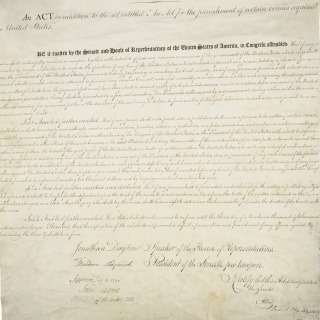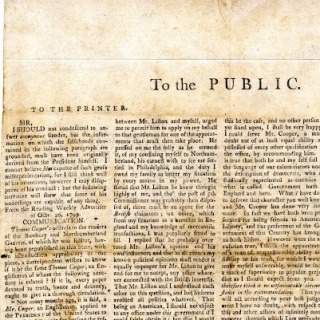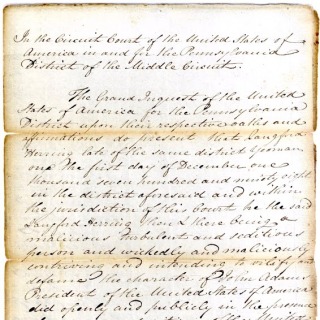The Sedition Act 1798
In 1798, the United States faced the threat of war with France. At the same time, internal battles raged between the emerging political parties in the Federal Government. The Federalist-controlled Congress passed the Sedition Act, making it a crime for American citizens to “print, utter, or publish . . . any false, scandalous, and malicious writing” about the Government. Thomas Jefferson, leader of the Democratic-Republicans, predicted that the act “unless arrested at the threshold, [will] necessarily drive these States into revolution and blood.”
Sedition Act trials set off a firestorm of criticism against the Federalists. It was not the last time Americans would wrestle with the question, “how do we protect free speech during times of war?”


